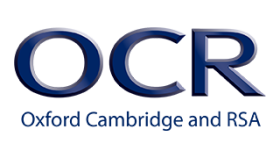Cambridge Nationals are practical, accessible, fun to teach and exciting to learn. Designed for students aged 14-16 years, our Level 1 / Level 2 Cambridge Nationals complement GCSE choices, inspiring students to develop real-world skills.

Where’s the confidence in coding?
With research revealing that sixty-seven per cent of teachers feel that they can’t effectively teach coding to children aged between eight and fifteen, Education Business looks at what help and support is out there from the technology industry
According to a survey from IT consultancy BJSS and YouGov, which saw 500 primary and secondary school teachers take part, 67 per cent of teachers throughout Britain feel that they can’t effectively teach coding to children aged between eight and 15 as they don’t have the right skills or tools.
The research also revealed that 83 per cent of teachers believe it’s important for the Department for Education (DfE) to provide better training with (39 per cent) stating that they do not have access to adequate IT and software to teach coding. 76 per cent also felt that it was important for technology companies to engage more with local schools to help address the issue.
Teachers surveyed also felt that it was important to provide coding lessons for children from economically disadvantaged backgrounds (71 per cent) and to provide extra teaching support for underachieving children in this subject (65 per cent). The research also revealed a belief that personal computing equipment for children aged eight to 15 should be subsidised (60 per cent).
Glynn Robinson, managing director at BJSS, said: “To safeguard the UK’s digital competitiveness, it is crucial that primary and secondary school teachers are properly equipped and resourced to teach the digital and coding skills that will be required by the time today’s schoolchildren enter the workforce.”
SCHOOL LEAVERS
This research is backed up by a study from edtech company SAM Labs and YouGov, which reveals that 70 per cent of recent school leavers wish they had learnt coding. What’s more, fifty-three per cent of Brits now believe that learning coding in school is just as important as learning a foreign language, such as French or Spanish.
The study also found that 60 per cent wish that they had been taught basic coding whilst at school (only 12 per cent say that they had been offered coding lessons), and half (49 per cent) said that they thought all kids in school today should have mandatory coding lessons before they leave secondary school. Amongst recent school leavers (aged 18 to 24), 70 per cent say that they wish they had received coding lessons while at school.
The study also looked into how they compared coding lessons to other school subjects, in light of how useful they would be to future career prospects. The results showed that one in three believe that coding is just as important, or more important, than learning maths or English. 56 per cent believe that coding is more important than ancient languages such as Latin, and most UK adults (53 per cent) now agree that learning coding is just as important for future career prospects as learning a modern language.
CODING AND CAREERS
Having coding sit as a core part of the school curriculum is particularly important as one in three Brits now believe that most jobs in the future will require all applicants to have a basic understanding of coding, according to the SAM Labs survey.
It also revealed that 49 per cent of UK adults believe that all kids should be taught at least some mandatory basic coding before they leave school.
Kids should also be taught basic coding, and the logic behind it, from a young age. However the research found that just three per cent have received lessons in coding before leaving primary school.
As well as one in three believing that most jobs of the future will depend on coding, 54 per cent of Brits said that they believed that mandatory coding lessons in school would be good for the future of the UK economy.
Worryingly though, only a third of parents said that their children were currently getting lessons in coding. Six per cent of parents also say that they don’t believe that they would adequately support their children with their coding homework.
Meanwhile, 29 per cent worry that schools currently do not have the resources that they might need to teach coding lessons properly.
Joachim Horn, CEO of SAM Labs, commented: “Whilst there are many brilliant teachers already engaging their students in coding lessons, we are still a long way off ensuring that all kids have access to the basic coding skills they need. By teaching coding in interesting and accessible ways, we can ensure that all pupils have the coding know‑how that their parents now wish they had.”
“Not only are basic coding skills good for preparing kids for the workplace of tomorrow, they can also help to engage students in lessons across the curriculum, including everything from science to art.”
HELP AND SUPPORT
There is various support from the technology industry to help schools with the new computing curriculum and coding.
The Barefoot project, for example, was established in 2014 with the original aim to help primary school teachers in England get ready for the computer science element of a new computing curriculum. It was originally funded by the DfE and run by BCS in partnership with BT and CAS.
BT took over the lead and funding for the project in 2015, with the continued support of BCS and CAS, they now have the aspiration to enable the resources and workshops to be available to all primary school teachers throughout the UK.
The project offers exemplar teaching activities, created by a team of practising computing teachers. These are high quality, cross-curricular activities that help primary teachers to deliver the computing curriculum in engaging and practical ways.
The project also offers ‘teach yourself’ resources to help primary teachers on their journey towards becoming excellent computing teachers by improving their subject knowledge and understanding. Giving clear definitions, examples and progression across all primary school age and ability ranges, these resources help teachers deepen their own understanding of computational thinking and computer science topics.
There are also Barefoot Workshops, which are free CPD sessions run by volunteer experts and introduce teachers to the Barefoot computing resources. Teachers can arrange for a Barefoot Workshop to be held at their school and benefit from great resources and support.
RESOURCES TO DELIVER
Tech giant Cisco has recently partnered with The Open University to launch a ‘Computing for Schools’ programme. This will provide teachers from across the UK with training and resources to help them deliver the computing curriculum. This is for teachers who in many cases have only basic computer literacy training. The programme is accessible to anyone in the UK, including for the seven million school age children.
What’s more, Cisco is delivering digital skills training for all in UK libraries, which will first be available in all 22 libraries in Manchester. Residents will have free access to courses that range from the basics of getting online, to providing an introduction to the Internet of
Things and cybersecurity. Following the launch in Manchester, other cities are set to introduce the programme in early 2018.
The programmes are underpinned by the Cisco Networking Academy, which celebrates its 20th year and has trained over 240,000 students in the UK.
These programmes are part of Cisco’s ongoing collaboration with the UK government and the Digital Skills Partnership.
SAM Labs also offers a solution for teachers who are teaching computer science by providing in-classroom support around the STEAM Kit for both the early adopter and the tech-hesitant teacher by offering fully integrated and curriculum‑based lesson plans and hands-on teacher support. With partners like Intel Education and Microsoft Education, SAM Labs aims to bring coding to all homes and classrooms.
For school children, IT consultancy BJSS, has partnered with Turinglab, an organisation dedicated to teaching coding skills to British school children, and Ada, the National College for Digital Skills, to deliver a creative coding platform aligned with the national computing curriculum. Over 1,000 pupils have already benefited from free Turinglab learning, 100 of which have received a scholarship from BJSS. A national rollout has been committed to for 2018 and BJSS is looking not only to double its scholarship fund but also to extend the training to teachers.
SUPPORT FOR PARENTS
Ebuyer.com has directed its attention to helping parents support their children with computing. The firm has compiled some advice on how parents can support their child to learn computer programming.
Ebuyer.com explains that coding is ultimately writing instructions for a computer to follow, and urges parents to try to think about real life examples, such as following a recipe, that you can use to teach them the basic process.
‘Scratch’ is a resource that teaches the basic training on HTML, CSS, Javascript and many more, with useful step-by-step tutorials. If the child has an aptitude for coding, Ebuyer.com urges parents to invest some time to teach themselves the basics, or work through the tasks along with their child so they can both learn together.
Ebuyer.com highlights that there are hundreds of free games available that will teach children the basic skills of coding, without feeling like they are still in school. CodeCombat is just one of the many games available, which sees users take their ‘hero’ through the different levels using basic commands. For children with a more advanced knowledge of coding, Code Wars helps improve your skills by challenging other users.
Ebuyer.com also explains how coding kits can help novices. The Arduino Coding Kit, for example, teaches the basics of electronics and programming to build an Etch-a-Sketch. If the child particularly excels and shows an interest in learning more complicated applications, as they get older a desktop computer would be a good investment. The Acer Aspirecomputer has all the functionality of a desktop, with a sleek and lightweight design.
If a parent is worried about the amount of time their child is spending in front of a screen at home, the Code Club might be a good solution. With over 5,969 clubs across the UK, they are a great opportunity for 9-13 year olds to socialise with like-minded children and learn valuable skills that will benefit their education. These free clubs help young people learn Scratch, HTML and CSS by making games, animations and websites.
Paul Lyons, IT director at Ebuyer.com, said: “It’s really encouraging to see that schools are embracing technology to aid education, but as coding becomes more prevalent, parents need to be prepared to support this and develop skills from all ages. As coding will be part of your child’s ICT lessons, introducing it into their after school activities is a good idea.
“Even if they have no interest in becoming a software developer, they will benefit from skills such as problem solving and following instructions – which can be applied to benefit learning in other areas. Many parents may not know where to begin but introducing educational aspects into children’s technology use at home can have a real impact on a child’s ability.”
Latest News
07/05/2024 - 12:20
Organisations have been invited to apply for the chance to set up a new National Academy for Mathematical Sciences (NAMS) to champion the value of maths and create future jobs.
07/05/2024 - 10:10
The Boarding Schools’ Association is partnering with recruitment specialists Hays to launch a new recruitment platform for the education sector.
07/05/2024 - 09:48
Ofsted has said it will stop subject deep dives during ungraded inspections from September, in a speech at the NAHT conference.
03/05/2024 - 12:12
Early educators can support young children’s development by teaching them how to be more aware of their feelings and actions, according to the Education Endowment Foundation.
03/05/2024 - 09:30
Forty three per cent of teachers said their lessons were disrupted, a survey from Teacher Tapp has found.
Supplier Focus
Latest Supplier News
Borg & Overström is a UK manufacturer of premium drinking water solutions. For over 20 years Borg & Overström has developed sustainable, bottle-less, hygienic, drinking water dispensers with the aim to provide exceptional, safe, self-service drinking water into schools, universities, workplaces and communal spaces.










